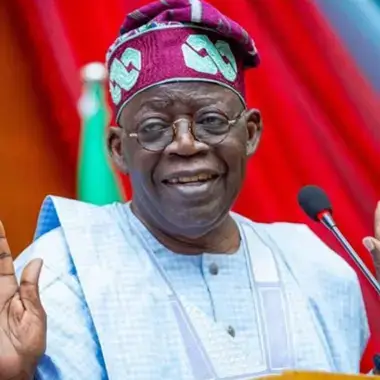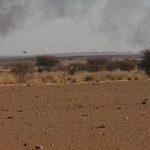
As Insecurity, Floods, and Hunger Ravage Nigeria, President Tinubu Escapes to a Caribbean Island, Saint Lucia, for ‘Rest’

President Bola Tinubu is set to visit the Caribbean island nation of Saint Lucia from June 28 to July 4, 2025, combining official diplomatic engagements with personal vacation time, even as Nigeria struggle with worsening insecurity, rising hunger, floods in Niger, and recent killings in Benue State.
The visit was announced by Saint Lucia’s Prime Minister Philip J. Pierre, who described it as a “unique and historic opportunity” to deepen the bonds between Africa and the Caribbean, reflecting the regions’ shared heritage and cultural connections. During the trip, President Tinubu is scheduled to address a joint sitting of Saint Lucia’s House of Assembly and Senate on June 30 at the William Jefferson Clinton Ballroom at Sandals Grande, Gros Islet. Formal discussions will continue on July 1, with invitations extended to all heads of government from the Organisation of Eastern Caribbean States (OECS) to participate in talks focusing on economic development, education, infrastructure, and diplomatic relations.
Outside these official engagements, the remainder of the visit is designated for personal ‘rest’ and leisure, which critics say sends the wrong message given Nigeria’s current state.
The announcement has triggered widespread criticism at home, especially following the recent massacre in Benue State, where hundreds of innocent residents were brutally killed. President Tinubu had initially planned to visit the massacre sites but cancelled, citing poor road conditions and heavy rains, despite scenes of schoolchildren lined up in the rain awaiting his arrival.
READ MORE: When Death No Longer Shocks: Nigeria’s Growing Numbness to Tragedy
Nigeria is facing multiple crises, including rising inflation, a weakening currency, widespread food insecurity, and escalating violence across several regions. Many Nigerians have taken to social media to condemn the president’s planned overseas trip as lacking empathy. Many citizens argue that the federal government’s priorities appear misplaced, accusing the president of abandoning the suffering population during a critical time.
The optics of a presidential vacation in the Caribbean amid such turmoil represent a widening gap between the leadership and the people. Many point out that the government’s resources could be better deployed toward humanitarian relief, security efforts, and economic stabilisation at home rather than on foreign travel and leisure.
As President Tinubu prepares for his week-long visit, public debate intensifies over whether the diplomatic objectives will justify what many perceive as escapism during one of Nigeria’s most challenging periods in recent memory.
About The Author
Related Articles
AES Condemns Niamey Airport Attack, Warns of Coordinated Destabilisation
The Alliance of Sahel States has strongly condemned the armed attack on...
ByWest Africa WeeklyFebruary 2, 2026Mali Cedes Strategic Land to Guinea to Deepen Trade Cooperation
Mali has approved the transfer of a strategic parcel of land to...
ByWest Africa WeeklyFebruary 2, 2026Senegal to Appeal CAF Sanctions After AFCON Final Controversy
Senegal has announced plans to formally appeal the sanctions imposed by the...
ByWest Africa WeeklyFebruary 2, 2026Burkina Faso Takes Legal Step Toward Nuclear Energy Development
Burkina Faso has voted to join the Vienna Convention on Civil Liability...
ByWest Africa WeeklyFebruary 2, 2026












Leave a comment